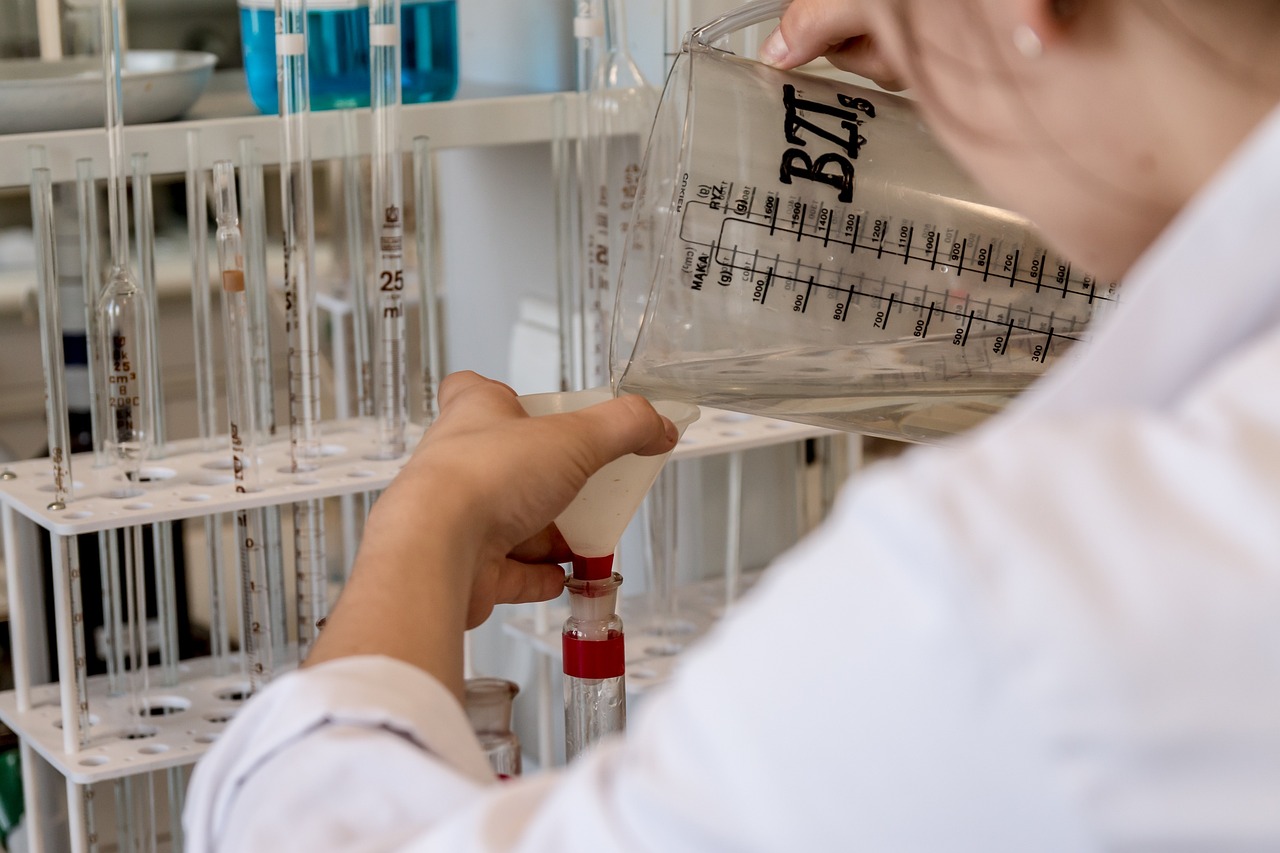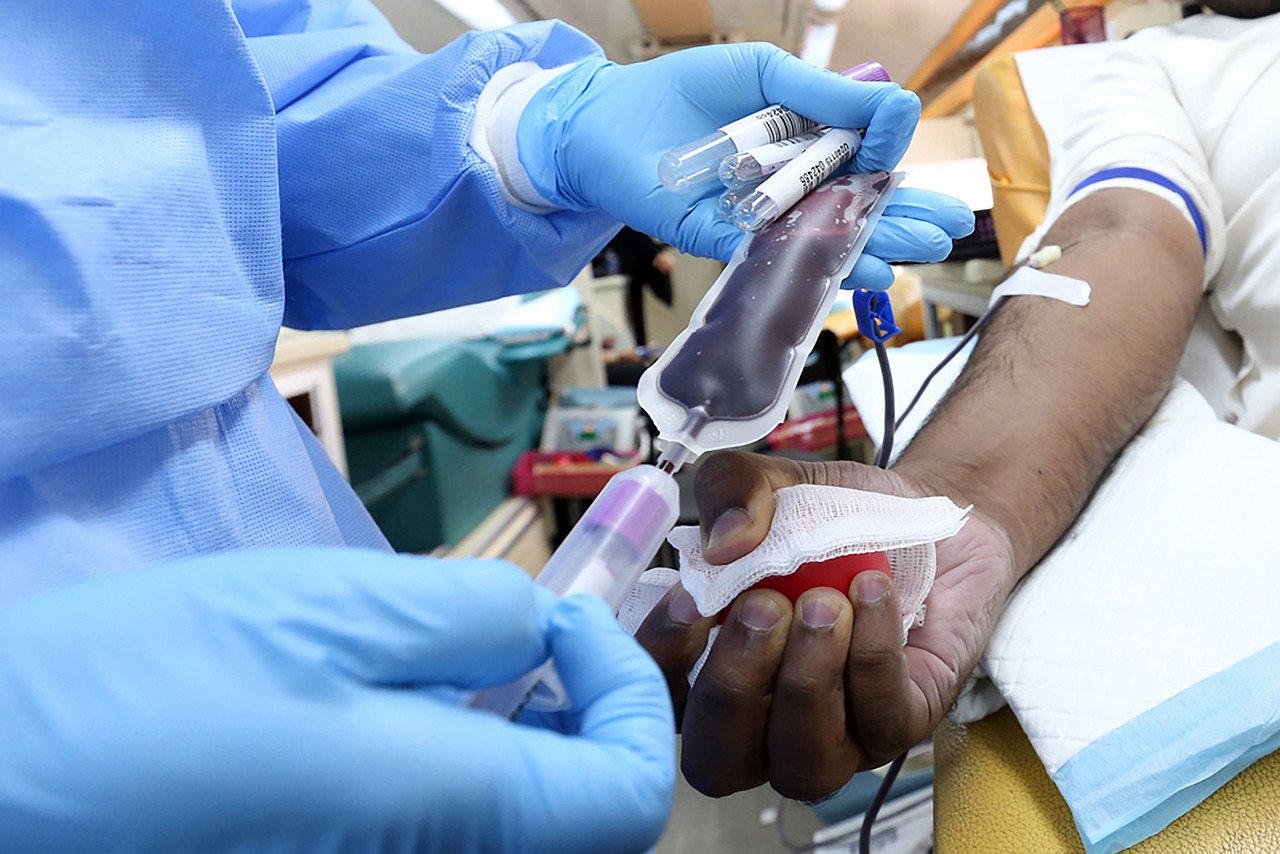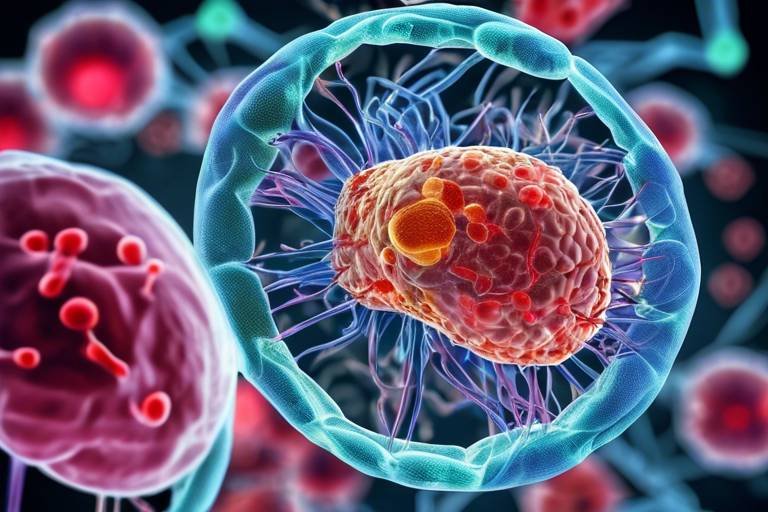The Ethical Implications of Bioethics
In our rapidly advancing world, the intersection of technology and healthcare has sparked a plethora of ethical questions that demand our attention. The field of bioethics serves as a guiding light, illuminating the complex moral landscape we navigate as we embrace biotechnological advancements. From the moment a new medical technology is introduced, we are faced with a myriad of ethical implications that can influence not just individual patients, but entire communities and societies. This article aims to delve deep into these implications, exploring how they shape healthcare practices, research methodologies, and our collective values.
At its core, bioethics is not just about making decisions; it's about making the right decisions. It challenges us to consider the **moral dilemmas** inherent in medical practice and research. For instance, when we think about genetic engineering, we must ask ourselves: What does it mean to alter the very fabric of life? Are we playing God, or are we simply enhancing human potential? These questions are not merely academic; they have real-world consequences that can affect generations to come.
The implications of bioethics extend beyond individual choices to broader societal impacts. As we grapple with issues like cloning and stem cell research, we must also consider the potential for inequality and injustice. Who gets access to these technologies? Are we creating a society where only the wealthy can afford life-saving treatments? Such questions compel us to reflect on our values and priorities as a society.
Moreover, the ethical implications of bioethics are not static; they evolve as our understanding of science and medicine grows. For example, consider the ongoing debates surrounding artificial intelligence in healthcare. While AI has the potential to revolutionize diagnostics and treatment plans, it also raises concerns about privacy, consent, and accountability. How do we ensure that these technologies are used ethically and responsibly? This is where bioethics plays a crucial role, providing a framework for addressing these complex issues.
As we move forward, it is essential to engage in open dialogues about the ethical implications of bioethics. This involves not just healthcare professionals and policymakers, but also the public. We must foster a culture of transparency and inclusivity, where diverse voices are heard, and varying perspectives are considered. The future of bioethics will depend on our ability to navigate these discussions with empathy and understanding.
In conclusion, the ethical implications of bioethics are profound and far-reaching. They challenge us to think critically about our choices and the impact they have on individuals and society as a whole. As we continue to innovate and explore new frontiers in healthcare, we must remain vigilant in our commitment to ethical principles that prioritize human dignity, justice, and the common good.
- What is bioethics? Bioethics is a multidisciplinary field that combines ethics, law, and medicine to address moral issues in healthcare.
- Why are ethical implications important in healthcare? Ethical implications guide healthcare practices, ensuring decisions respect patient rights and societal values.
- How does technology influence bioethics? Advancements in technology introduce new ethical dilemmas, such as privacy concerns and equitable access to treatments.
- What role do policies play in bioethics? Policies shape ethical practices by providing regulations and guidelines that govern healthcare and research.

Understanding Bioethics
Bioethics is a fascinating and ever-evolving field that sits at the intersection of ethics, law, and medicine. It seeks to address the moral dilemmas that arise in healthcare and medical research, guiding professionals as they navigate complex decisions that can significantly impact human lives. In essence, bioethics is about asking the tough questions: What is the right thing to do when it comes to patient care? How do we balance innovation and safety? And, importantly, how do we ensure that our actions align with our values as a society?
The significance of bioethics in contemporary medical practice cannot be overstated. As advancements in technology propel us into new realms of possibility, such as genetic engineering and artificial intelligence in healthcare, the ethical implications of these innovations grow increasingly complex. For instance, consider the case of gene editing. While it holds the potential to eradicate genetic disorders, it also raises concerns about designer babies and the long-term consequences of altering human DNA. This duality—where potential benefits are accompanied by ethical quandaries—makes bioethics a critical area of study.
Moreover, bioethics is not just confined to the walls of hospitals or research labs. It permeates various aspects of our lives, influencing public policy, healthcare access, and even how we perceive the value of human life. In a world where healthcare disparities exist, bioethics prompts us to consider questions like: Who deserves access to cutting-edge treatments? What responsibilities do we have to vulnerable populations? These questions challenge us to think deeply about our societal values and the ethical frameworks that underpin our healthcare systems.
To illustrate the diverse applications of bioethics, consider the following scenarios:
- Informed Consent: Patients must understand the risks and benefits of a treatment before agreeing to it. Bioethics ensures that patients are fully informed and can make autonomous choices.
- Resource Allocation: In times of crisis, such as a pandemic, how do we decide who receives limited medical resources? Bioethical principles guide these tough decisions.
- Research Ethics: Researchers must adhere to ethical standards to protect participants in clinical trials, ensuring their rights and welfare are prioritized.
In conclusion, bioethics serves as a vital compass for navigating the moral landscape of modern medicine. It challenges us to think critically about our choices and their implications, urging us to act with integrity and compassion. As we continue to grapple with new technologies and their ethical ramifications, the role of bioethics will only become more pronounced, guiding us toward a future where healthcare is not only innovative but also just and equitable.

Historical Context of Bioethics
To truly grasp the essence of bioethics, we must embark on a journey through its historical context. The roots of bioethics can be traced back to ancient civilizations where moral dilemmas in medicine were first contemplated. From the Hippocratic Oath in ancient Greece, which emphasized the importance of ethical practice in medicine, to the Nuremberg Code established after World War II, the evolution of bioethics has been shaped by significant events that reflect societal values and technological advancements.
One of the key milestones in the history of bioethics was the aftermath of World War II, which revealed the horrific consequences of unethical medical practices. The Nuremberg Trials led to the establishment of the Nuremberg Code in 1947, a set of ethical principles for conducting research involving human subjects. This code emphasized the necessity of voluntary consent and the right of participants to withdraw from studies without any repercussions. It was a pivotal moment that laid the groundwork for modern research ethics.
As we moved into the 1960s and 1970s, the field of bioethics began to gain formal recognition. The establishment of various bioethics committees and institutions marked a significant shift in how ethical considerations were integrated into healthcare and research. The Belmont Report, published in 1979, further refined ethical principles by outlining three core tenets: respect for persons, beneficence, and justice. These principles continue to guide bioethical discussions today.
Throughout the 20th century, several other critical events shaped bioethical standards. Notably, the advent of new technologies, such as organ transplantation and reproductive technologies, raised complex ethical questions. For instance, the development of in vitro fertilization (IVF) in the late 1970s prompted debates around the moral status of embryos, leading to a variety of opinions and regulations across different cultures.
Moreover, the rise of genetic research in the late 20th century introduced a new layer of complexity to bioethics. The Human Genome Project, completed in the early 2000s, opened up possibilities for genetic engineering and gene therapy, but it also sparked a myriad of ethical discussions regarding privacy, consent, and the potential for genetic discrimination. The implications of these advancements are profound, as they challenge our understanding of identity, health, and what it means to be human.
In summary, the historical context of bioethics is a tapestry woven from the threads of historical events, technological advancements, and evolving societal values. As we reflect on this evolution, it’s essential to recognize that the challenges we face today in bioethics are not entirely new; rather, they are an extension of ongoing dialogues that have persisted through the ages. Understanding this history provides a foundation for navigating the ethical dilemmas that lie ahead.
- What is bioethics? Bioethics is a multidisciplinary field that addresses moral issues in healthcare, combining ethics, law, and medicine.
- Why is the Nuremberg Code significant? The Nuremberg Code established ethical principles for conducting research involving human subjects, emphasizing voluntary consent.
- How have technological advancements impacted bioethics? New technologies, such as genetic engineering and reproductive technologies, have raised complex ethical questions regarding privacy, consent, and identity.

Major Bioethical Theories
When we dive into the realm of bioethics, we're not just skimming the surface; we're plunging into a deep ocean of moral philosophy. At its core, bioethics is influenced by several major ethical theories that help us navigate the murky waters of healthcare decisions, research ethics, and societal implications. Understanding these theories is essential because they provide the framework through which we evaluate the rightness or wrongness of actions in the complex world of medicine and biotechnology.
One of the most prominent theories is utilitarianism, which is all about the outcomes. Imagine you're at a party and there's only one piece of cake left. If you give it to the person who would enjoy it the most, that's a utilitarian approach—you're maximizing happiness. In bioethics, this translates to making decisions that aim for the greatest good for the greatest number of people. For instance, in public health, when allocating limited resources like vaccines, utilitarianism would advocate for prioritizing those who can benefit the most, thereby enhancing overall societal well-being.
On the flip side, we have deontological ethics, which emphasizes duties and rules. Think of it as the strict parent of ethical theories—it's not just about the outcomes, but about following the rules of morality. In a healthcare setting, this perspective is crucial when considering patient rights and informed consent. For example, even if a treatment could save many lives, if it violates an individual's autonomy or rights, a deontologist would argue against it. This theory helps ensure that ethical standards are upheld, regardless of the potential benefits.
Another significant theory is virtue ethics, which shifts the focus from rules or outcomes to the character of the individuals involved. It asks, "What kind of person should I be?" In the context of bioethics, this theory encourages healthcare professionals to embody virtues such as compassion, honesty, and integrity. When making decisions, they are guided not just by rules or consequences, but by what a good healthcare provider would do. This approach fosters a more holistic view of ethics, emphasizing the importance of moral character in the practice of medicine.
To summarize these major theories, let’s take a look at the following table that encapsulates their core principles:
| Theory | Core Principle | Application in Bioethics |
|---|---|---|
| Utilitarianism | Greatest good for the greatest number | Resource allocation in public health |
| Deontological Ethics | Emphasis on duty and rules | Patient rights and informed consent |
| Virtue Ethics | Focus on moral character | Guiding principles for healthcare professionals |
Each of these theories offers unique insights and tools for addressing the ethical dilemmas that arise in bioethics. By understanding and applying these theories, healthcare professionals and ethicists can better navigate the complexities of modern medicine, ensuring that their decisions are not only effective but also ethically sound. As we continue to face new challenges in healthcare and biotechnology, these theoretical frameworks will remain invaluable guides in fostering ethical practices and policies.
- What is bioethics? Bioethics is a multidisciplinary field that examines the ethical implications of biological and medical procedures, technologies, and treatments.
- Why are ethical theories important in bioethics? Ethical theories provide frameworks for understanding and resolving moral dilemmas in healthcare and research.
- How do utilitarianism and deontological ethics differ? Utilitarianism focuses on outcomes and the greatest good for the majority, while deontological ethics emphasizes adherence to moral rules and duties.
- What role does virtue ethics play in healthcare? Virtue ethics encourages healthcare professionals to cultivate moral character and make decisions based on virtues like compassion and integrity.

Utilitarianism in Bioethics
Utilitarianism, a principle that champions the idea of achieving the greatest good for the greatest number, plays a pivotal role in the realm of bioethics. Imagine a world where every decision made in healthcare and medical research is guided by a simple yet profound question: "How can we maximize overall well-being?" This is the essence of utilitarian thinking, and it becomes particularly crucial when navigating the murky waters of ethical dilemmas that arise from advancements in biotechnology.
In practical terms, utilitarianism often manifests in decisions regarding resource allocation. For instance, consider a hospital facing limited resources during a health crisis. The ethical dilemma arises when medical professionals must decide how to allocate life-saving treatments. Should they prioritize patients with the highest chance of recovery, or should they consider the broader impact on community health? Here, utilitarianism encourages healthcare providers to weigh the potential outcomes of their decisions, aiming to maximize positive results for the largest number of people.
However, the application of utilitarianism in bioethics is not without its challenges. Critics argue that this approach can lead to morally questionable outcomes, as it may justify sacrificing the needs of a few for the benefit of many. For instance, in the context of clinical trials, the utilitarian perspective might support testing a new drug on a small group of patients if it promises significant benefits for a larger population. This raises profound ethical questions about consent, risk, and the value of individual lives.
To illustrate the complexities of utilitarianism in bioethics, let's consider a few scenarios:
- Vaccination Programs: Should a government mandate vaccinations to achieve herd immunity, even if it means some individuals may experience adverse effects?
- End-of-Life Decisions: In a situation where a patient is terminally ill, should resources be diverted from their care to treat younger patients with better prognoses?
- Resource Allocation in Pandemics: During a pandemic, should healthcare systems prioritize treatments for those who are most likely to survive, potentially leaving vulnerable populations without care?
These scenarios highlight the delicate balance that utilitarianism seeks to maintain between individual rights and the collective good. As we navigate these ethical waters, it becomes clear that utilitarianism does not provide straightforward answers; rather, it challenges us to think critically about the implications of our choices in bioethics.
In conclusion, while utilitarianism offers a framework for making ethical decisions that benefit the majority, it also prompts us to consider the moral weight of our actions. Are we truly serving the greater good, or are we inadvertently marginalizing those who need our help the most? As we continue to push the boundaries of medical science, the principles of utilitarianism will undoubtedly remain a cornerstone of bioethical discussions, urging us to reflect on our responsibilities to one another as we strive for progress.
- What is utilitarianism? Utilitarianism is an ethical theory that suggests that the best action is the one that maximizes overall happiness or well-being.
- How does utilitarianism apply to bioethics? In bioethics, utilitarianism helps guide decisions regarding healthcare resource allocation, prioritizing actions that benefit the majority of people.
- What are some criticisms of utilitarianism? Critics argue that utilitarianism can lead to morally questionable decisions, as it may prioritize the needs of the majority over the rights of individuals.

Deontological Ethics in Bioethics
Deontological ethics, often associated with the work of philosopher Immanuel Kant, emphasizes the importance of duty and adherence to rules when making ethical decisions. In the realm of bioethics, this approach becomes particularly significant as it seeks to uphold the rights and dignity of individuals, regardless of the consequences. Imagine a world where every medical decision is made purely on the basis of outcomes—what would happen to the fundamental rights of patients? This is where deontological ethics steps in, advocating for a moral framework that prioritizes the ethical obligations healthcare providers have towards their patients.
In bioethics, deontological principles guide practitioners to respect patient autonomy, informed consent, and confidentiality. These principles are not just abstract ideas; they form the backbone of ethical medical practice. For instance, when a doctor decides to disclose a patient's diagnosis, they are not merely considering the potential outcomes of that disclosure but are also fulfilling their duty to inform the patient, thus respecting their autonomy. This ethical obligation is critical in maintaining trust in the patient-provider relationship.
One of the most compelling applications of deontological ethics in bioethics is in the context of informed consent. Patients have the right to make informed decisions about their healthcare, and this right must be respected regardless of the potential consequences. For example, if a patient chooses to refuse a life-saving treatment, a deontological perspective would uphold their decision, emphasizing the importance of respecting their autonomy over the possible negative outcomes of that choice.
Moreover, deontological ethics also addresses the concept of moral duties towards vulnerable populations. Healthcare providers are often faced with dilemmas where they must advocate for patients who may not be able to advocate for themselves, such as children or individuals with cognitive impairments. In such cases, deontological ethics compels healthcare providers to act in the best interest of these individuals, ensuring that their rights are protected and that they receive equitable treatment.
However, the application of deontological ethics is not without its challenges. Critics argue that a strict adherence to rules can sometimes lead to rigid outcomes that may not serve the best interests of patients. For instance, consider a scenario where a physician is ethically bound to maintain patient confidentiality, even when disclosing information could potentially prevent harm to others. This dilemma illustrates the tension between ethical duties and the real-world complexities of patient care.
In conclusion, deontological ethics provides a crucial framework for navigating the moral landscape of bioethics. By emphasizing duties and obligations, it ensures that patient rights are upheld and that ethical standards are maintained in healthcare practices. As we continue to grapple with complex bioethical dilemmas, the principles of deontology will remain essential in guiding healthcare professionals towards making decisions that honor the inherent dignity of every individual.
- What is deontological ethics? Deontological ethics is a moral philosophy that emphasizes the importance of rules and duties in ethical decision-making, regardless of the consequences.
- How does deontological ethics apply to healthcare? In healthcare, deontological ethics guides practitioners to respect patient rights, ensure informed consent, and maintain confidentiality.
- What are the criticisms of deontological ethics? Critics argue that a strict adherence to rules can lead to rigid outcomes that may not always serve the best interests of patients.
- Why is informed consent important in bioethics? Informed consent is crucial as it respects patient autonomy and allows individuals to make informed decisions regarding their healthcare.

Contemporary Bioethical Issues
In today's rapidly advancing world, the field of bioethics is confronted with a plethora of contemporary issues that challenge our moral compass and societal norms. As we delve into the realm of biotechnology, we encounter ethical dilemmas that provoke thought and debate. From genetic engineering to cloning, these advancements have the potential to revolutionize healthcare, but they also raise significant ethical questions that society must grapple with.
One of the most pressing contemporary bioethical issues is genetic engineering. With technologies like CRISPR-Cas9, scientists can now manipulate genes with unprecedented precision. This capability opens the door to eradicating genetic disorders, but it also raises concerns about the implications of “designer babies.” Should parents have the right to choose their child’s traits? The debate is heated, with arguments on both sides regarding the potential for inequality and the unforeseen consequences of altering human genetics.
Another major issue is cloning. While the cloning of animals has been a reality for years, the possibility of human cloning remains a contentious topic. Proponents argue that cloning could lead to breakthroughs in organ transplantation and infertility treatments. However, opponents highlight the moral and ethical implications of creating life in a laboratory setting, questioning the individuality and rights of cloned beings. The societal acceptance of cloning is further complicated by cultural and religious beliefs, making it a multifaceted issue that requires careful consideration.
Stem cell research represents another critical area of contemporary bioethical discourse. Stem cells hold immense potential for regenerative medicine, offering hope for conditions like Parkinson's disease and spinal cord injuries. However, the source of these stem cells—particularly embryonic stem cells—raises ethical concerns regarding the destruction of embryos. This dilemma pits the potential for medical breakthroughs against the moral status of human embryos, leading to passionate debates among scientists, ethicists, and the public alike.
Furthermore, as technology continues to evolve, we find ourselves facing issues related to data privacy and consent. With the rise of electronic health records and genetic databases, maintaining patient confidentiality has become increasingly challenging. How do we ensure that individuals' genetic information is protected while still allowing for valuable research? The balance between innovation and privacy is delicate, and navigating this landscape requires robust ethical guidelines and policies.
To summarize, contemporary bioethical issues are complex and multifaceted, requiring a nuanced understanding of the implications of biotechnological advancements. As society grapples with these challenges, it is essential to engage in open dialogues that encompass diverse perspectives. The following table outlines some of the key contemporary bioethical issues and the questions they raise:
| Bioethical Issue | Key Questions |
|---|---|
| Genetic Engineering | Should parents be allowed to choose their child's traits? What are the implications for societal inequality? |
| Cloning | What rights do cloned beings have? Is it ethical to create life in a laboratory? |
| Stem Cell Research | Is it acceptable to use embryonic stem cells for research? What is the moral status of embryos? |
| Data Privacy | How do we protect patient confidentiality in the age of digital records? What are the ethical implications of genetic data sharing? |
As we navigate these contemporary bioethical challenges, it becomes increasingly clear that the intersection of technology, ethics, and healthcare will continue to evolve. Open discussions, informed consent, and robust ethical frameworks will be essential in guiding us through these complex moral landscapes.
- What is bioethics? Bioethics is the study of ethical issues arising from advances in biology and medicine.
- Why is genetic engineering controversial? It raises questions about the morality of altering human genetics and the potential for inequality.
- What are the ethical concerns surrounding cloning? The main concerns involve the rights of cloned beings and the implications of creating life artificially.
- How does stem cell research relate to bioethics? It involves ethical debates about the use of human embryos for research purposes.
- What role does data privacy play in bioethics? Protecting patient information is crucial as technology advances, raising questions about consent and confidentiality.

The Role of Policy in Bioethics
When we think about bioethics, it’s easy to get lost in the complex web of moral dilemmas and ethical quandaries that arise in healthcare and research. But behind the scenes, there's a crucial player that can’t be overlooked: policy. Policies serve as the backbone of bioethical practices, guiding healthcare professionals and researchers in their decision-making processes. They provide a framework that helps to navigate the murky waters of ethical decision-making, ensuring that actions taken in the name of science and medicine align with societal values and ethical standards.
At its core, policy in bioethics is about establishing rules and guidelines that govern the conduct of healthcare providers, researchers, and institutions. These policies can take many forms, including laws, regulations, and institutional guidelines. They are designed to protect the rights of individuals, promote fairness, and ensure that ethical considerations are at the forefront of medical practice. For instance, policies related to informed consent are vital in ensuring that patients are fully aware of the risks and benefits associated with treatments or participation in research studies.
One of the most significant aspects of bioethical policy is its ability to adapt to new challenges posed by advancements in technology and medicine. As we venture into uncharted territories, such as genetic engineering and artificial intelligence in healthcare, the policies that govern these practices must evolve. Consider the following key roles that policy plays in bioethics:
- Establishing Standards: Policies create benchmarks for ethical behavior, ensuring that all stakeholders understand their responsibilities.
- Protecting Rights: They safeguard the rights of patients and research participants, ensuring that their dignity and autonomy are respected.
- Guiding Research: Policies help to steer research practices, promoting ethical experimentation and the responsible use of technology.
- Promoting Accountability: They hold healthcare providers and researchers accountable for their actions, fostering a culture of transparency and trust.
However, the development and implementation of bioethical policies are not without challenges. There can be significant discrepancies in how policies are interpreted and enforced across different regions and cultures. For example, what is considered ethical in one country may be viewed differently in another, leading to potential conflicts in global health initiatives. This highlights the need for a more unified approach to bioethical policy that respects cultural differences while maintaining core ethical principles.
Moreover, the rapid pace of scientific advancement often outstrips the ability of policymakers to keep up. This gap can result in a reactive rather than proactive approach to bioethics, where policies are created only after ethical breaches occur. To address this, it’s essential for policymakers to engage with bioethicists, healthcare professionals, and the public in ongoing dialogue about emerging technologies and their implications. This collaborative approach can help ensure that policies are not only relevant but also forward-thinking.
In conclusion, the role of policy in bioethics is indispensable. It shapes the ethical landscape of healthcare and research, guiding practitioners and researchers in their efforts to make morally sound decisions. As we continue to navigate the complexities of modern medicine, the importance of robust, adaptable, and culturally sensitive bioethical policies cannot be overstated. They are the compass that helps us find our way through the ethical dilemmas that arise in the ever-evolving world of healthcare.
- What is the primary function of bioethical policies? Bioethical policies establish guidelines and standards for ethical behavior in healthcare and research, ensuring the protection of individual rights and promoting accountability.
- How do cultural differences affect bioethical policies? Different cultures may have varying interpretations of ethical principles, which can lead to discrepancies in policy application and enforcement across regions.
- Why is it important for policies to adapt to technological advancements? As technology evolves, new ethical dilemmas emerge, necessitating updates to policies to ensure they remain relevant and effective in guiding ethical decision-making.

Global Perspectives on Bioethics
When we talk about bioethics, it's crucial to understand that its principles and applications can vary significantly across the globe. Different cultures, religions, and legal systems shape how societies approach ethical dilemmas in healthcare and research. For instance, what might be deemed acceptable in one country could be considered taboo in another. This diversity is not just a minor detail; it represents a rich tapestry of human values and beliefs that influence medical practices.
In some Western countries, the emphasis is often on individual rights and autonomy. Patients are encouraged to make informed decisions about their healthcare, reflecting a strong belief in personal freedom. This approach is deeply rooted in the philosophical traditions of liberalism and individualism. However, in many Eastern cultures, there is a greater focus on community and familial obligations. Decisions regarding healthcare may be made collectively, prioritizing the well-being of the family or community over individual preferences.
To illustrate these differences, consider the following table that highlights various global perspectives on key bioethical issues:
| Country/Region | Key Bioethical Focus | Example Issues |
|---|---|---|
| United States | Individual Autonomy | Informed consent, patient rights |
| Japan | Collectivism | Family involvement in healthcare decisions |
| Scandinavia | Equity and Access | Universal healthcare, resource allocation |
| Middle East | Religious Considerations | End-of-life care, reproductive technologies |
As you can see, the ethical frameworks that guide bioethical decision-making can be vastly different depending on cultural contexts. For example, in the Middle East, religious beliefs often play a significant role in shaping bioethical discussions, particularly regarding issues like genetic engineering and reproductive health. The intersection of faith and medicine can lead to unique ethical dilemmas that require sensitive navigation.
Moreover, the globalization of healthcare complicates these issues further. With the rise of telemedicine, international clinical trials, and the sharing of medical technologies, bioethical questions now transcend national borders. How do we ensure that ethical standards are upheld when practices differ so widely? This is a pressing concern for bioethicists and policymakers alike.
In conclusion, understanding global perspectives on bioethics is not just an academic exercise; it’s essential for fostering respectful and effective healthcare practices in our increasingly interconnected world. As we continue to navigate the complex landscape of bioethics, recognizing and respecting these diverse viewpoints will be key to ethical decision-making in healthcare.
- What is bioethics? Bioethics is a field that combines ethics, law, and medicine to address moral issues in healthcare.
- Why do global perspectives on bioethics matter? Different cultures have varying beliefs and practices that influence ethical decision-making, making it important to understand these differences in a global context.
- How do cultural values impact bioethical decisions? Cultural values shape what is considered acceptable or unacceptable in medical practices, affecting everything from patient autonomy to family involvement in healthcare decisions.
- What are some contemporary bioethical issues? Issues such as genetic engineering, cloning, and stem cell research are at the forefront of current bioethical discussions.

Future Directions in Bioethics
As we look toward the horizon of bioethics, it's clear that the landscape is rapidly changing. With advancements in technology, particularly in fields like genomics, artificial intelligence, and neuroethics, new ethical dilemmas are emerging that challenge our traditional frameworks. Imagine a world where genetic modifications are not just possible but commonplace. What happens to the concept of human identity? Will we be able to draw a line between enhancement and therapy? These are the kinds of questions that will dominate the future of bioethics.
One significant area of focus will be the ethical implications of CRISPR technology. This revolutionary gene-editing tool has the potential to eliminate genetic diseases, but it also raises profound ethical questions. For instance, should we allow modifications that could enhance human capabilities? The debate around "designer babies" is just the tip of the iceberg. As we venture further into genetic manipulation, we must consider the societal implications of creating a genetic divide between those who can afford enhancements and those who cannot.
Moreover, the rise of artificial intelligence in healthcare is another frontier that bioethics must navigate. AI systems are increasingly being used for diagnostic purposes, treatment recommendations, and even robotic surgeries. While these technologies can improve efficiency and outcomes, they also pose risks regarding patient privacy and autonomy. How do we ensure that AI systems are transparent and accountable? The ethical frameworks guiding the development and implementation of these technologies will need to evolve rapidly to address these concerns.
Additionally, the field of neuroethics is gaining traction as we learn more about the brain and its complexities. With advancements in neuroimaging and brain-computer interfaces, we are entering a realm where we can manipulate thoughts and behaviors. This raises questions about free will and moral responsibility. If we can alter a person's brain chemistry to change their behavior, what does that mean for accountability in criminal justice?
To navigate these complex issues, it is crucial that we engage in interdisciplinary dialogue among ethicists, scientists, policymakers, and the public. Creating a framework for ethical decision-making that includes diverse perspectives will be essential. Below is a table summarizing some of the key areas of focus in the future of bioethics:
| Area of Focus | Key Ethical Questions |
|---|---|
| Genetic Engineering | Should we allow enhancements? What are the implications of genetic inequality? |
| Artificial Intelligence | How do we ensure AI accountability? What about patient privacy? |
| Neuroethics | What is the impact on free will? How do we handle moral responsibility? |
In conclusion, the future of bioethics is not just about addressing new technologies but also about understanding their profound implications on our society. As we stand on the brink of these advancements, we must ask ourselves: how do we want to shape the future? The answers to these questions will not only define the ethical landscape of tomorrow but also the very essence of what it means to be human in an increasingly complex world.
- What is bioethics? Bioethics is the study of ethical issues emerging from advances in biology and medicine.
- Why is bioethics important? It helps guide decision-making in healthcare and research, ensuring that moral considerations are taken into account.
- What are some contemporary bioethical issues? Issues include genetic engineering, cloning, stem cell research, and the use of AI in healthcare.
- How do cultural differences affect bioethics? Different societies may have varying beliefs and values that influence their approach to ethical dilemmas.
Frequently Asked Questions
- What is bioethics?
Bioethics is a multidisciplinary field that combines ethics, law, and medicine to tackle moral issues in healthcare. It plays a crucial role in guiding medical practices and ensuring that patient rights are respected while addressing complex ethical dilemmas.
- Why is bioethics important in healthcare?
Bioethics is essential in healthcare because it helps navigate the moral complexities of medical decisions. It ensures that patients are treated with dignity and respect, while also considering the implications of new technologies and treatments on society as a whole.
- What are some major bioethical theories?
Some major bioethical theories include utilitarianism, which focuses on the greatest good for the greatest number; deontology, which emphasizes duty and adherence to rules; and virtue ethics, which centers on the character and moral integrity of individuals involved in healthcare decisions.
- How does utilitarianism apply to bioethics?
Utilitarianism applies to bioethics by guiding decisions that aim to maximize overall benefits. For example, in public health, resource allocation may prioritize treatments that provide the greatest benefit to the largest number of people, raising ethical questions about individual rights versus collective good.
- What role does informed consent play in bioethics?
Informed consent is a cornerstone of bioethical practice, ensuring that patients have the right to understand and agree to medical treatments. It emphasizes transparency and respect for patient autonomy, allowing individuals to make informed decisions about their healthcare.
- What are some contemporary issues in bioethics?
Contemporary issues in bioethics include genetic engineering, cloning, and stem cell research. These advancements raise significant ethical questions about the manipulation of life, potential consequences, and the moral implications of playing God in the realm of biology.
- How do policies influence bioethical practices?
Policies shape bioethical practices by establishing regulations and guidelines that govern healthcare and research. These frameworks help ensure ethical decision-making, protect patient rights, and promote accountability among healthcare providers and researchers.
- Are bioethical standards the same worldwide?
No, bioethical standards vary across cultures and countries. Different societies have unique approaches to bioethical issues, influenced by cultural values, religious beliefs, and social norms, which can impact global health initiatives and collaborations.
- What future challenges might bioethics face?
As technology advances, bioethics will face new challenges such as artificial intelligence in healthcare, gene editing technologies, and ethical concerns surrounding data privacy. These developments will require ongoing dialogue and adaptation of ethical frameworks to address emerging dilemmas.



















